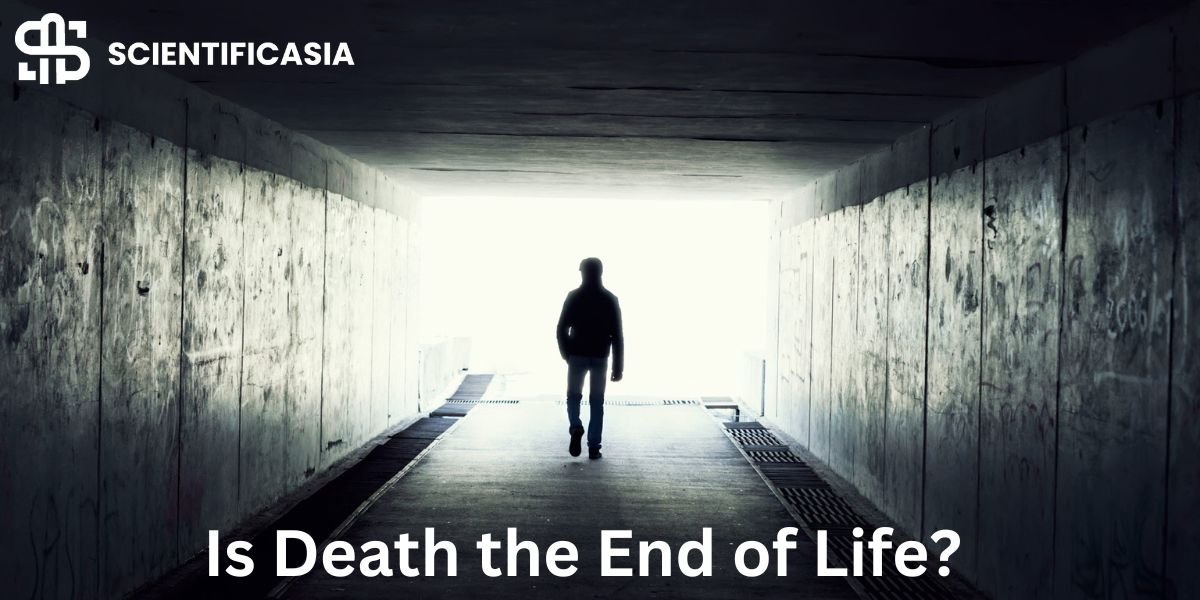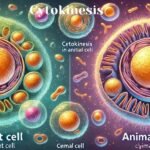When we think about death, we’re exploring a universal puzzle. The big question is: does everything really stop when we die? This goes beyond just science—it reaches into deep thoughts about life, spirituality, and how we make sense of it all. Science looks at death as the moment our bodies stop working, but religions have their own stories about what comes next. And then there’s a fascinating idea called biocentrism, shaking up our usual ideas about life’s end.
In the next words, we’ll journey through these different perspectives, hoping to unravel some of the mysteries that surround the idea of life’s final chapter.
Biological Perspective on Death
In simple terms, death marks the point when the body’s many tasks come to a halt. It’s not just about the heart or the brain; it involves everything working together. From the tiniest cells to the complex systems that keep us going, the biological perspective sees death as a natural part of life’s journey. Looking at it this way gives us a starting point to explore other ways of thinking about the end of life.
Religious and Spiritual Perspectives
Around the world, different beliefs paint pictures of what happens once our time on Earth is done. Some speak of heaven and hell, places where our actions lead to good or not-so-good outcomes. Then there’s karma, a concept suggesting that what we do shapes what comes next. In certain beliefs, reincarnation comes into play, proposing that we get a fresh start in a new life.
These stories, full of meaning and hope, mirror humanity’s attempt to understand life and find purpose. It’s like an intricate tapestry of beliefs, woven through generations, with each thread telling a unique story about what might await us beyond our time here.
Secular and Atheistic Views
Unlike religious ideas, some people who don’t follow a particular faith think that when we die, everything stops. From existentialist thoughts to atheistic materialism, folks with these views say that consciousness ends with life. They believe our time on Earth is all there is, emphasizing the significance of making the most of it. For them, life’s limits highlight the importance of focusing on the here and now, encouraging us to find meaning and joy in our present existence without expecting anything beyond this earthly journey.
Biocentric Take and Death
A super interesting way of thinking about death is through biocentrism. Robert Lanza and Bob Berman came up with this idea. They say life and thinking aren’t just things that happen in the universe; they’re actually super important to how the universe works. So, instead of seeing death as the very end, biocentrism says it’s more like a change – a shift in how we experience things.
This way of thinking shakes up what we usually believe, suggesting that our thoughts really shape what’s real. It’s like saying we’re not just along for the ride in the universe; we’re actively part of it, affecting how we see life and death.
Conclusion
In the tapestry of human thought, the question of whether death is the end of life remains a complex and evolving narrative. From the purely biological to the spiritually transcendent, and the paradigm-shifting biocentric approach, our understanding of death is as diverse as the cultures that contemplate it. As we navigate this intellectual landscape, we find that the mystery of death continues to beckon, inviting us to ponder the profound and perennial questions that lie beyond the horizon of our mortality.














